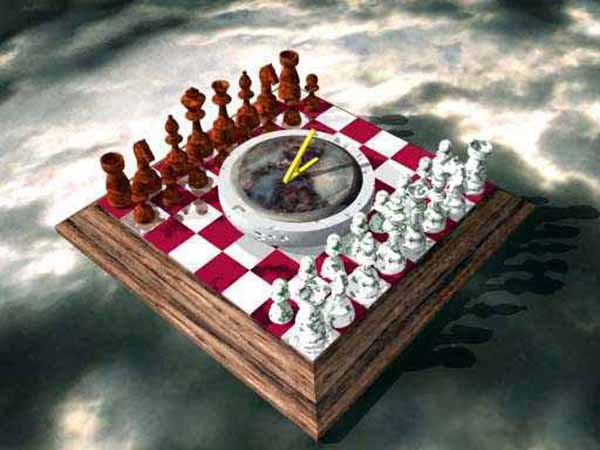
President Trump Faces Unprecedented Backlash
Although the White House said that it would challenge Robart’s decision through the Department of Justice, the U.S. Court of Appeals on Sunday refused the department’s request to overturn Robart’s ruling.
With Trump’s alarming performance, he is in the process of upsetting the balance of the three branches of American government. He has suffered the most extensive array of initial setbacks in the courts of any new president in American history. The American checks and balances system is highly active, sounding the alarm through mutual coordination on the unyielding president’s restrictive measures.
The new president has lost even more ground in public opinion. Some anti-Trump joint signatory letters have already drawn significant attention, and opinion polls show more people are opposed to Trump than are supporting him. Yet Trump has only been in office for two weeks. Such a situation is unprecedented in American history. Mainstream American media criticism of Trump is growing harsher, and European media is all the more severe. The German weekly Der Spiegel’s cover illustration showed Trump as a butcher without eyes, holding the decapitated, bloody head of the Statue of Liberty.
Such an opening page for a newly-seated president is more or less disastrous, showing that forces from all over America are rising up. There is a latent danger that resistance to the president will have a domino effect. If this kind of conflict re-emerges, America will be heading for a grave constitutional crisis, at which point anything could happen.
The present situation appears to be telling Trump that if he wishes to manage the country in the same manner he did his business, with the entire government implementing his “dictatorial” orders, it will simply not be practicable. America does not exist for one certain goal or mode of thought; it is inevitably governed as a product of diverse powers and a compromise of interests. This is true on the international stage as well.
Without overwhelming popular support, the changes Trump wants to push forward are probably unattainable. His character may well have a negative impact on public opinion and fail to constitute a genuine force that can break through obstacles. Obama’s eight years were practically fruitless; the arduously assembled health care reform effort will still be upended by Trump. This is not to say Obama was weak, but more so that the American political system itself determined the outcome.
Trump seems to consistently believe that America and the rest of the world will buy into his ill temperedness; that as soon as he speaks and announces his position, the domestic and international powers that be will submit. In his companies this was the case, but having grabbed political power, it is an entirely different world. Judge Robart has taken an antagonistic lead against Trump; his rousing call truly did set in motion the necessary resistance to push back against Trump. The effective significance and inspiration to anti-Trump groups that this matter provided will prove to be greatly outside the norm.
Moreover, beyond his “temperament” and stark difference from the people, Trump also lacks any sort of special political capital. The actual portion of the popular vote he received falls short of one half, lower than that of Hillary Clinton, and the American elite have not been amenable to him even as he takes office. While he might not be a weak president, at the very least not while he stood on the inaugural platform, he still lacks the resources to be a strong one.
It is easy enough to pierce through the grandeur in which Trump has established himself. Robart’s challenge probably offers a lesson. The battle lines Trump drew at the beginning of his administration were far too broad, provoking core interests on all sides; resistance and protest were inevitable. Opponents of protest are growing weaker, and Trump is relatively more likely to lose; if he loses even once or twice, it will be difficult for many to accept the president’s authority.
We believe that in the present circumstances, if Trump seeks to open up another “battlefront” with China, like the one he opened before his ascent to office, he will have to do so after serious consideration. The Chinese must in turn make adequate preparations, lest Trump does aim the tip of his spear toward us, in which case we must confront him head on and not back down. But we need not stand in as prominent a place as the flag bearers of his detractors. If Trump grows too vexed with protest, he will gradually realize that China is a good partner for cooperation.

